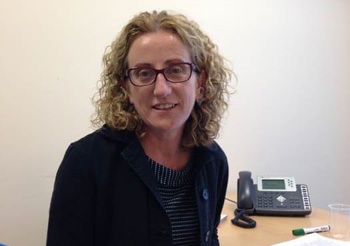
What has changed?
The short answer is that governance and management, residents’ rights, infection control, and notification times have all been addressed by the Department of Health’s amendments.
The longer version is that the Irish government confirmed on November 5th, 2024 that there would be an amendment to the Health Act 2007 (Care and Welfare of Residents in Designated Centres for Older People) Regulations 2013. This was signed by Minister for Health Stephen Donnelly, and Minister of State for Mental Health and Older People Mary Butler.
Six key areas of change were listed by the Department of Health:
- An assurance that residents’ rights to visiting are protected, even during outbreaks, and that communication is facilitated with family members. This is to be formalised in a written Visitors Policy.
- Enhanced qualification criteria for persons-in-charge, including a requirement for a Level 8 management certificate. This ‘person in charge’ is required to have a minimum of three years’ experience in nursing management.
- Enhanced governance, quality improvement and risk processes in nursing homes.
- Annual quality improvement plans will be a requisite, designed to support a focus on care quality improvement.
- A requirement that infection prevention and control guidance is implemented and training provided – in line with HIQA standards.
- A reduced notification period of a range of incidents to HIQA, to drop from 3 working days to 2 working days.
In response, the Health Information and Quality Authority has promised it will inspect all nursing homes in Ireland at least annually.
Why the changes?
The obvious answer is that the previous 2013 amendments to the Health Act 2007 were deemed insufficient, and more regulation was required – regulation to be policed by the HIQA.
As stated in our introduction, the Covid-19 Nursing Homes Expert Panel, HIQA, and other stakeholders engaged with the government regards the updating of existing Irish law in order to strengthen the regulatory framework governing nursing homes. This was an ongoing process between 2020 and 2024 when the government announced a plan to enact amendments in 2025.
The HIQA report from 2022 perhaps offers the best insight. In it, they conclude that overall compliance is strong, though there are concerning elements (unspecified) that they were to monitor. The important bit is their analysis of the nursing home sector. The Health Information and Quality Authority highlighted that the sector is changing, with fewer small-size homes. This changes the scope of management, oversight, and a chain of command within the homes regards both authority and duty. It’s no surprise then that several of the Department of Health’s changes revolve around expectations of qualification, governance, and risk management – areas that will snowball in severity in larger-scale nursing homes.

Initial Reactions
The Health Information and Quality Authority, who were key advisors towards these changes, welcomed the move.
Speaking about the regulations, Deputy Chief Inspector of Social Services, Susan Cliffe (pictured above) said: "As people get older, they must be supported to live active and fulfilling lives where their human rights are protected and promoted and in settings that are local and promote their independence as far as possible. These updated powers for the Chief Inspector represent the most extensive update to the regulations since the commencement of regulating nursing homes in 2009. We welcome their introduction and the enhanced protections they will provide for residents."
Ms Cliffe did also go on to flag the burden caused by Covid-19 on residents, their families, and care home staff, and stressed that the new workings came from the stress testing of the pandemic period and the flaws exposed in balancing personal rights with broader safety concerns.
Tadgh Daly, Nursing Homes Ireland Chief Executive, told RTÉ's News at One that the changes give "legislative effect to practices that are already in place” and that the new regulations reflect "the changing nature of residential care".
The ministers who signed the amendments also issued government press statements, with Minister for Health Stephen Donnelly stating that “These welcome developments will place a greater focus on quality improvement, governance and residents’ rights."
Minister of State for Mental Health and Older People, Mary Butler, added: “I hope that the enhanced provisions around visiting and communication will reinforce the voice and choice of residents in their homes.
"It is important that older people and their families are reassured that our long-term residential care facilities meet the highest possible standards. These amendments will allow nursing home staff to build on good practice across the sector and deliver high standards of care."
The Access Group is a strong supporter of care workers – domiciliary or residential – through our software solutions, and we strive to work alongside care professionals to help deliver the best care possible. We will return and update this article in future with further reaction and assessment of the changes and whether they have lived up to expectations.

 UK
UK
 AU & NZ
AU & NZ
 SG
SG
 MY
MY
 US
US
